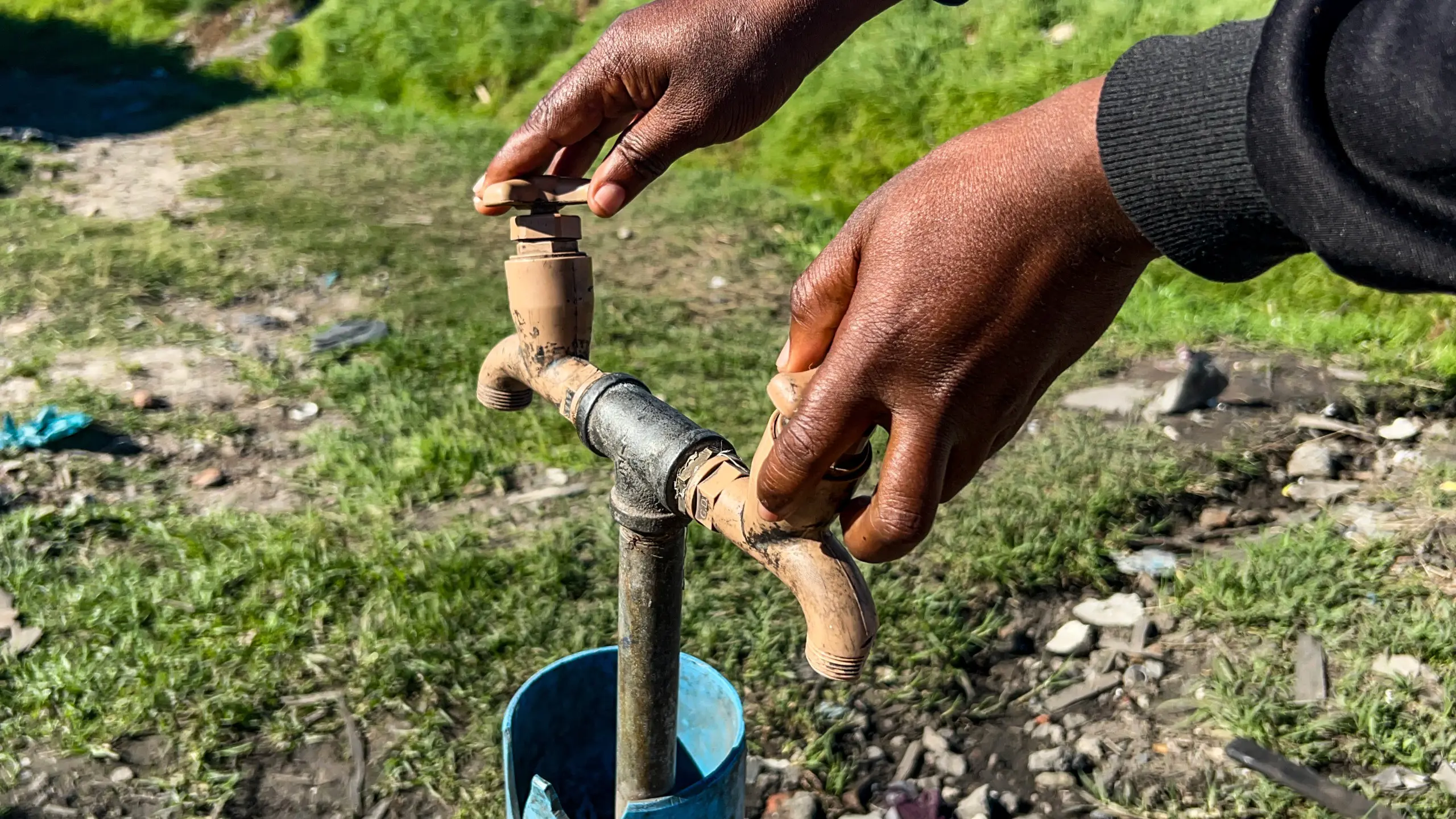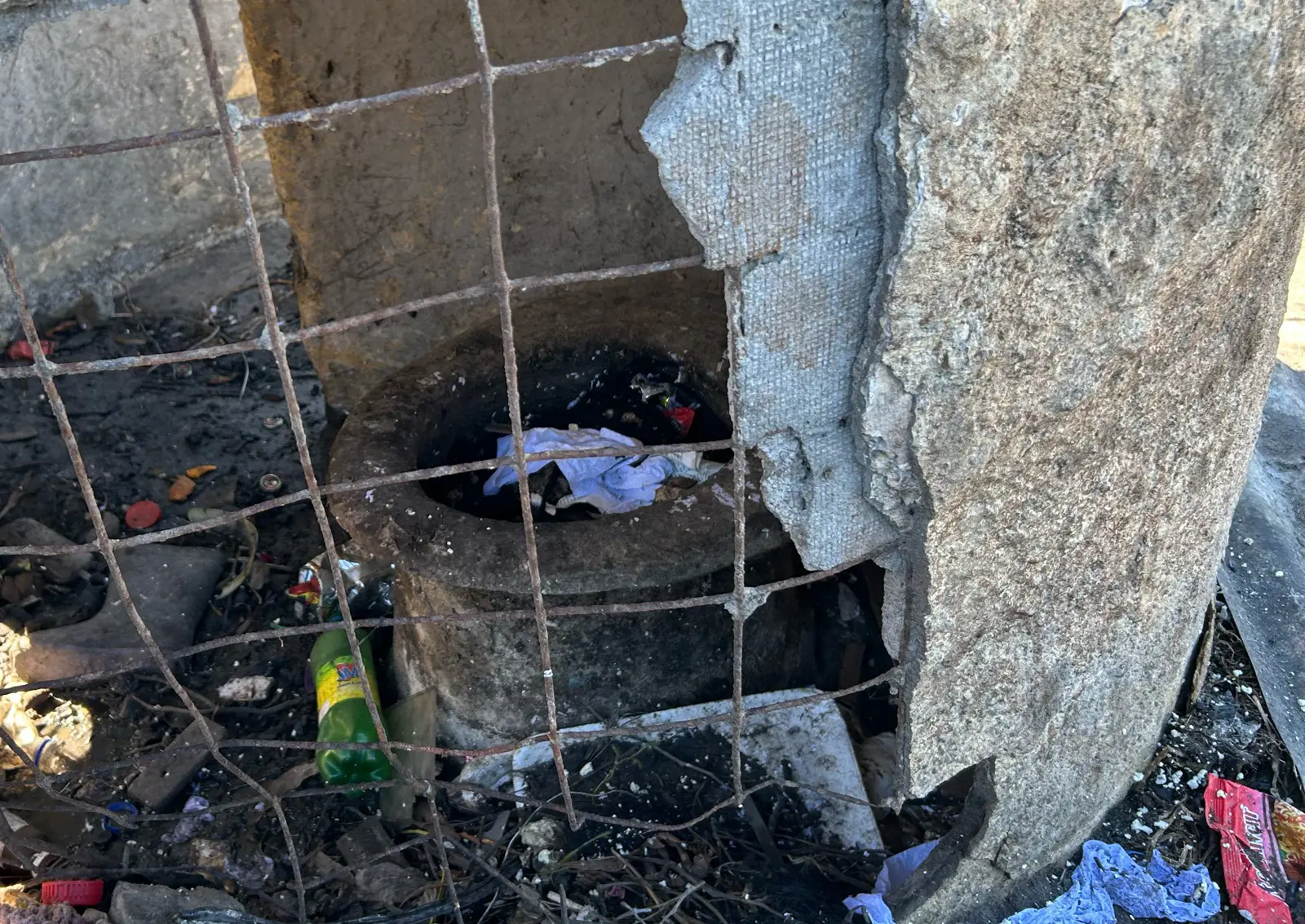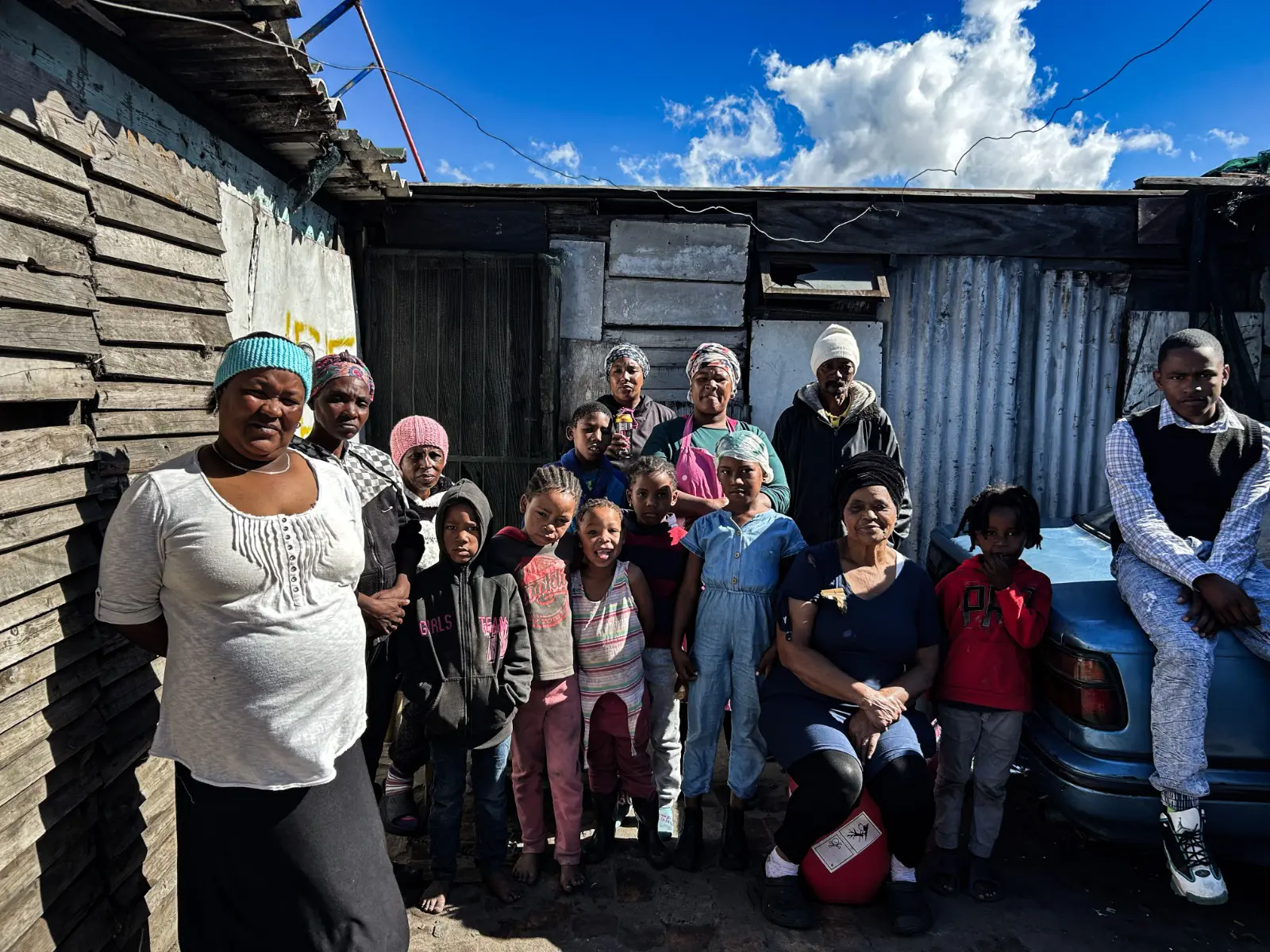Forgotten Philippi farmworkers: 'How can we vote when people forget about us who feed the nation?’
A community of farm workers in Philippi say political parties will need to bring more than food packages to their table while they fight food insecurity ahead of the upcoming elections.

A resident hangs laundry washed with dirty borehole water in the Philippi Horticultural Area. Picture: Kayleen Morgan/Eyewitness News
CAPE TOWN - Food insecurity in the Western Cape’s townships is high.
At least 78% households are food insecure, according to a study by the South African Journal of Agricultural Extension in 2018.
The people working to feed South Africa and maintain the Western Cape’s export margin are part of the group of people who are food insecure.
While South Africa’s national elections fast approaching, food packages have long been one of the tools used by politicians on campaign trails to appeal to old and potential supporters.
A group of farm workers in the Philippi Horticultural Area are part of the demographic of food insecure people. They told Eyewitness News that it was tough to think about voting when they go to sleep with empty stomachs, despite growing the food - which provides nourishment.

Taps are dry in Philippi's Horticultural Area, where a group of 60 farmworkers live. Picture: Kayleen Morgan/Eyewitness News
‘LIFE IS CHALLENGING HERE’
“Food packages and empty promises” simply would not be enough, they said.
Thirty-three-year-old David Titus was born and raised by parents who were farm workers, and subsequently became one himself at the age of 15. His other siblings followed suit.
They live on a small plot with around 15 shelters not far from a vegetable farm where they work. There’s no clean water, no electricity, and the three bucket toilets on the plot - which have been there “since apartheid”, according to Titus - are filled to the brim and no longer functioning, while the walls surrounding it have broken apart.
“Life is challenging here for us, but we have shelter, and we work to support our children, and that’s what keeps us going. There have been a few changes over the years, but not for our people [farmworkers]”, he said.
Beverley Titus said the residents in the enclave relied on non-profit organisations like Gift of the Givers for clothing, blankets and food.
“But when it comes to other services, and our human rights, we are on our own. There are no toilets, so we use buckets and throw it in the dam”, she said.

The toilets in the enclave have been filled with waste for years. Residents now use buckets. Picture: Kayleen Morgan/ Eyewitness News
FARMWORKERS AND POLITICS
Community activist Rodney Khan said farm owners did not follow basic labour laws, and exploited their workers by not providing adequate services at their accommodation.
Khan was also born and raised on a farm, and dropped out of school in grade 10 to become a farm worker.
He said it would make a difference for politicians and community members if the plight of farm workers was a priority in their manifestos.
“These [farm workers] are the people who need to be looked at and prioritised because they play a critical role for us as human beings, and yet they’re being violated,” he said.
“We hear about everything except farm workers in these manifestos,” he added.

A community of farm workers from the Philippi Horticultural Area who live without basic services are struggling to put food on their table. Picture: Kayleen Morgan/Eyewitness News
Titus echoes these sentiments.
“We don’t have a mouthpiece that can stand up and help us fight these farmers,” he said.
“If the farmer decides you’re working today, despite it being a holiday, or whether you should work a full or half day, then you must just go and work. And you can’t say no, you’re not going to work, because then that causes problems.”
At the same time, he is still on the fence about whether he’ll make a mark on the 29th of May.
“I’m not sure if I will or even want to vote in this election because what’s the point of me going to vote for someone who’ll then go and fix things out there, but he forgets about me on the farms, who nourishes these very same people.”